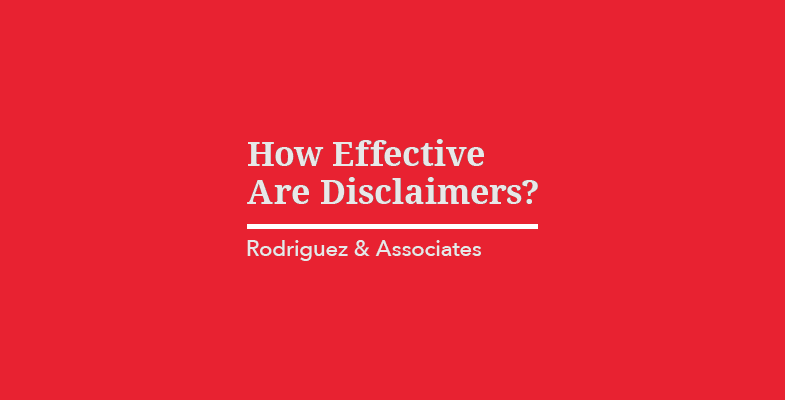When it comes to injuries and damages caused by products, it can be legally possible to pursue compensation through a product liability case. These claims allow for consumers to protect their rights to safety when using products. However, as a lawsuit can take up the time and money of a company and cast poorly on its reputation, many manufacturers hope to avoid such procedures altogether.
Product disclaimers are one such strategy to avoid fielding lawsuits and claims for damages from a company. Disclaimers are effective and can be legally binding as long as they are well written and fair to the readers. And while a disclaimer may seem discouraging when you read it, the legal effectiveness of these written warnings isn’t as airtight as you may think.
Implied Product Warranties
All manufacturers must uphold two types of warranties that boil down to one conclusion: the manufactured product is safe enough for consumer use, so long as you follow the intended purchase. Even if you don’t see such a warranty written out when you purchase a product, the law implies this safety for all manufactured and sold products.
Because you have these warranty rights, a general written disclaimer has no legal standing. You as a consumer have had no opportunity to bargain or revoke your warranty rights, so a written general product disclaimer would be invalid. Your default warranty rights still hold, and you’d be able to file a product liability lawsuit if you suffered unfair injury during reasonable use of the product.
Reasonable Use and Assumption of Risk
One of the included provisions of implied product warranties that they are only valid so long as a consumer uses a product within the reasonable limitations. For example, if you followed all safety precautions when lighting fireworks and still sustained an injury due to a malfunctioning product, then you would have a chance to file product liability.
On the other hand, if you were handling fireworks in an unsafe manner, such as aiming them at other people or objects, then you would not be using the product in a reasonable way, thus revoking your right to potential compensation for your damages. This is because assumption of risk has come into play.
Assumption of risk is a common defense for manufacturers during product liability cases, where the company purports that the plaintiff was using the product in an unsafe manner and assumed the potential risks of that use. Ways to reinforce this claim involve a product including a specific disclaimer rather than a general one.
General disclaimers often try to claim that the manufacturer has no form of liability through use of its products, no matter the situation. Specific disclaimers focus on stating the company isn’t liable if the consumer misuses the product in any way. If a manufacturer had included such a specific disclaimer with its product, then a court is much more likely to uphold it in court, so long as there is proof of product misuse.
Are There Situations Where General Disclaimers Can Apply?
While a court is much more likely to dismiss general disclaimers, it’s still possible for them to be valid in court. One common scenario is that if a written and signed contract indicates that the consumer has waived his or her warranty rights after given the chance to negotiate. A typical consumer may not see contracts for most purchases, but they can come into play for handmade or customizable products.
Even though general disclaimers aren’t effective in most situations, they can prevent lawsuits by discouraging customers from pursuing legal action – and it can be hard for an average consumer to tell the difference between a legally valid and invalid disclaimer. Seeking the counsel of an experienced Bakersfield product liability lawyer can help you determine if a disclaimer is legally binding. If not, you’ll be able to work with a lawyer to determine if you have a product liability case and start the claims process.
